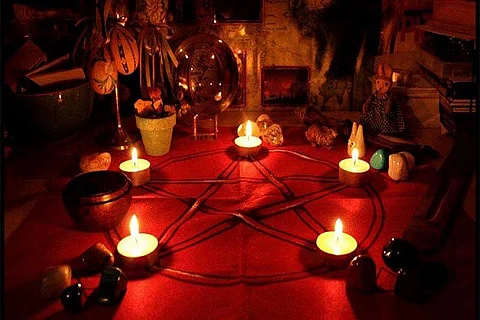

Karnataka Governor Vajubhai Vala has given his assent to the Karnataka Prevention and Eradication of Inhuman Evil Practices and Black magic Act 2017.
Popularly known as the Anti-Superstition Act, the law was enacted in 2017 during the Siddaramaiah-led Congress government’s rule in Karnataka.
According to the government order issued earlier this month, the Act came into force from January 4, 2020. The Karnataka Prevention and Eradication of Inhuman Evil Practices and Black Magic Bill 2016 was passed in the state Assembly on November 17, 2017 amid opposition from BJP MLA from Chikkamagaluru, CT Ravi, who had argued that the state government could not curb certain practices of the Hindu community.

What is banned
The act bans made snana, menstrual taboos, performing any black magic, inhumane act and evil practices in search of treasure or bounty, tantric acts which include physical and sexual assault.
Practices such as parading people naked, ostracising a person in the name of a ritual and encouraging inhumane acts during said rituals are also banned.
Rituals of exorcism, assaulting people under the pretext of exorcism, misinformation and creating a panic-like situation under the pretext of ghosts and black magic is also be banned. Other practices such as making claims of having healing power, propagating practices that involve self-mutilation and coercing people to perform fire-walking are banned.
The law also states that if any person is killed or injured due to superstitious practices, a case of murder or attempt to Murder can be registered by jurisdictional police. The law also mandates the appointment of one vigilance officer in every police station to keep tabs on such practices.
What is not banned
Any form of worship including pradakshine, yatra,
Providing knowledge of ancient arts and practices, speaking about miracles performed by deceased saints and literature on them offering prayers, upasana, religious rituals at places of worship or at people’s homes, religious celebrations, festivals, processions, piercing of ears and nose, shaving of head, astrology and vaastu are considered acceptable under the act.